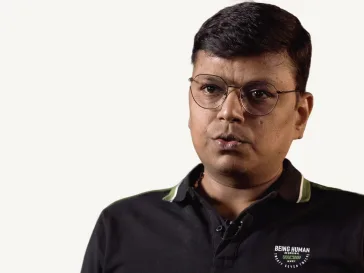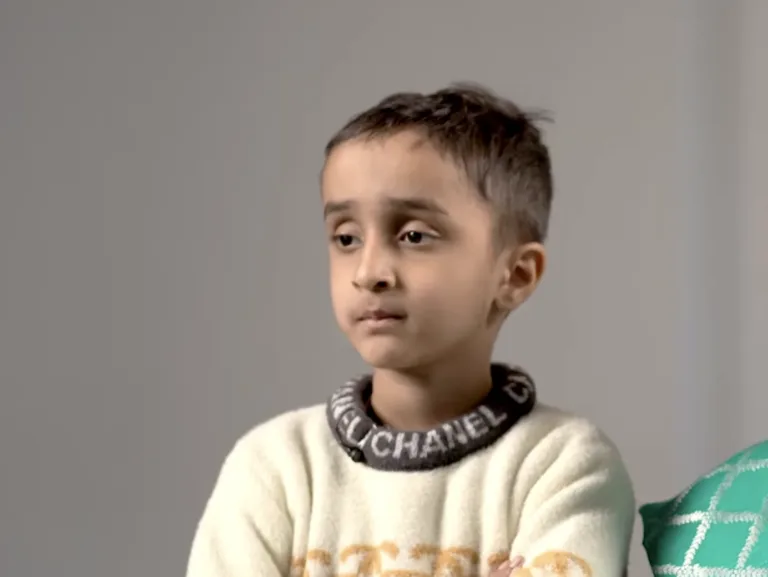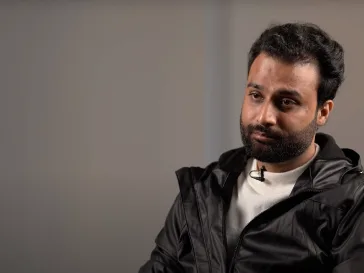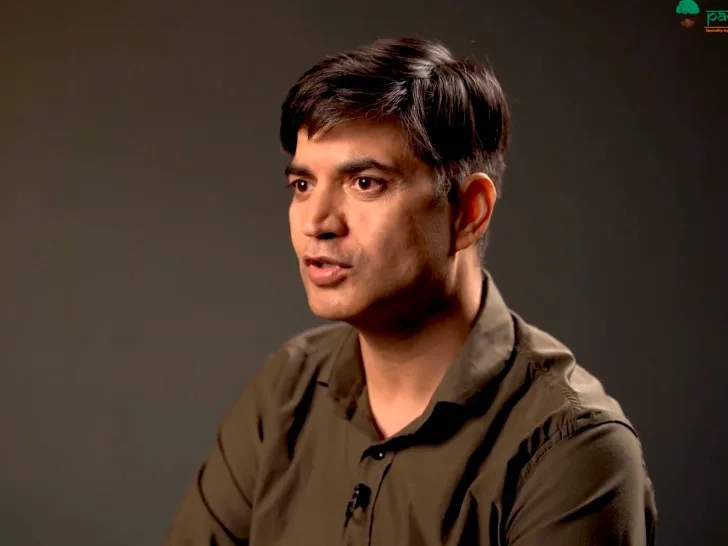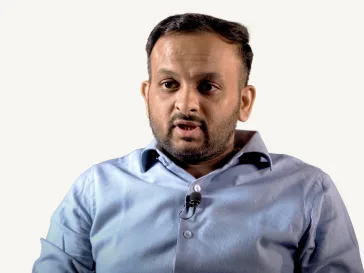Ahmedabad, Gujarat, India — Samip Desai, a 38-year-old restaurateur from Ahmedabad, embarked on his entrepreneurial journey in 2013, a year that also brought the joy of fatherhood. Yet, just two years later, his life was abruptly altered by the onset of a bewildering illness: chronic pancreatitis. His subsequent years were marked by excruciating pain, a frustrating cycle of medical uncertainty, and a desperate search for a lasting solution beyond the limitations of conventional care. Desai’s experience offers a compelling case study of a patient driven to explore alternative medical paradigms when standard treatments prove insufficient for a complex, chronic condition.
The Abrupt Onset and a Cycle of Unbearable Pain
Desai’s ordeal began unexpectedly in December 2015, when he experienced severe abdominal pain. Initially dismissed as a gastric issue, the pain persisted for 15-20 days before a sonography confirmed pancreatitis. He vividly describes the pain as “कोई आपके पेट पे आके बैठ गया हो और कमर इतनी टूट जाती है पता नहीं कि क्या नहीं सो सकते हो नहीं खड़े रह सकते हो” (someone sitting on your stomach, breaking your back; unbearable, preventing sleep or standing). This severe discomfort often necessitated hospitalization and reliance on strong painkillers, including Dynapar injections, which eventually ceased to be effective.
Despite being non-alcoholic and a non-smoker, a point he emphasizes repeatedly to doctors, the cause of his pancreatitis remained elusive in conventional diagnostics. He initially attributed it to an irregular lifestyle stemming from his new business, with erratic meal and sleep times. Further investigations revealed a stone in his pancreatic duct, which doctors attempted to remove in Mumbai, followed by the insertion of a stent in Ahmedabad. While the stent provided two months of relief, the pain and heaviness soon returned.
His condition persisted, marked by multiple attacks and hospitalizations, with Lipase levels soaring (e.g., 678.100 U/L in December 2015, 1122.400 U/L in April 2016). Despite a continuous regimen of Creon, a common pancreatic enzyme supplement, and strict dietary restrictions—avoiding butter, ghee, paneer, and heavy, refined flour items—his symptoms persisted. The prognosis from conventional doctors was grim: lifelong medication, with the stark possibility of requiring surgery and insulin dependency if his pancreas ceased functioning. The financial burden accumulated to over ₹2.79 lakh. This bleak outlook, coupled with the impact on his young family (he had a one-and-a-half-year-old child), prompted a desperate search for a more definitive solution.
The Search for a Breakthrough: A Family’s Quest for Ayurveda
Faced with the profound frustration of an intractable illness, Desai’s family began an exhaustive search for alternative treatments. His brother, deeply concerned by Samip’s deteriorating health, took the lead in researching options beyond allopathy. Their search led them to Padaav Speciality Ayurvedic Treatment Center.
Their initial approach to Padaav was met with a request for comprehensive medical reports, and staff demonstrated a nuanced understanding of pancreatitis, unlike other Ayurvedic clinics they had contacted. Crucially, Padaav provided references from other former patients, which proved pivotal. Samip recalls speaking with a patient who, after a decade of suffering and trying numerous treatments across India, unequivocally recommended Padaav, stating he had nowhere else to go. This direct testimony from a successful patient instilled a significant degree of confidence, providing the family with a tangible hope that had previously been absent.
Despite initial skepticism about Ayurveda—a common public perception influenced by notions of long treatment times, traditional settings, and questionable efficacy for serious illnesses—Desai and his family decided to take a leap of faith. They viewed it as a last resort, reasoning that if it worked, the benefits would be immense; if not, there was little left to lose.
Padaav’s Protocol: Re-engineering Lifestyle for Sustainable Health
Samip Desai was admitted to Padaav on March 28, 2017. His initial impression of Vaidya Balendu Prakash challenged his preconceptions of an Ayurvedic practitioner (“एकदम कूल बॉय जैसे थे” – like a cool young man). His 21-day inpatient program at Padaav focused on a comprehensive overhaul of his lifestyle, based on the Ayurvedic pillars of Aahar (Diet), Vihar (Lifestyle), and Aushadh (Medicine).
- Aahar (Diet): A significant departure from his previous restrictions, Padaav’s protocol emphasized regular, wholesome meals. Desai was surprised and relieved to be given Amar (a medicine) with cream, and to consume paneer and even occasional sweets, items strictly forbidden in his past. The kitchen also provided items like gulab jamun and sandwiches, all while adhering to precise meal timings throughout the day. This approach revitalized his appetite, which had been suppressed by restrictive diets.
- Vihar (Lifestyle): The daily routine included waking early, fixed meal times, and a consistent sleep schedule (10 PM to 6 AM). This disciplined regimen became a foundational habit that he continues to follow today.
- Aushadh (Medicine): Desai received personalized Ayurvedic medications. He emphasizes their efficacy and lack of negative side effects, contrasting them with the temporary relief provided by conventional painkillers. One notable outcome of this regimen was the normalization of his uric acid levels, which had previously required medication, after adopting Padaav’s high-protein diet.
The supportive environment at Padaav, including interactions with other patients and the diligent monitoring by staff who observed meal intake and progress, reinforced his commitment. Even his initial family’s concern about the distant location and the initial short observation period were overcome by the immediate positive changes.
Arresting Progression: A Sustainable Outcome and Reclaimed Life
Samip Desai’s dedication to Padaav’s protocol has yielded profound results. He reports that his condition is now fully managed, and the terrifying symptoms of pancreatitis are a thing of the past. He states, “पैंकक्रिएटाइटिस नाम की चीज हमारे फैमिली में कुछ अभी पता पता नहीं है कि इसको कुछ बीमारी है” (the thing called pancreatitis is unknown in our family now; they don’t know this disease). His lifestyle has normalized, allowing him to enjoy the life he had before his illness. He maintains a disciplined diet, avoiding onion and garlic, a habit he credits to Padaav for making him feel better.
His personal and professional life, which had been threatened by the illness, has seen a complete turnaround. The fear of being a burden on his family has dissipated, replaced by a renewed sense of purpose and confidence. He confidently assures others that “एक साल के अंदर पनक्रिएटाइटिस क्या चीज है वो आप भूल जाओगे इतना गारंटी मैं आपको देता हूं” (within one year, you will forget what pancreatitis is).
Desai’s case illuminates several critical elements in the successful management of chronic conditions:
- Integrated, Patient-Centric Care: Padaav’s methodology provides a structured approach combining personalized Ayurvedic medication, precise dietary regulation, and lifestyle modification, extending beyond mere symptom management to foster holistic well-being.
- Patient Empowerment & Adherence: His unwavering commitment to the regimen, driven by his own research and trust, was pivotal in transforming his health.
- A Complementary Solution: Desai’s narrative highlights the potential for alternative medical systems to provide effective, long-term solutions when conventional approaches face limitations in addressing complex, chronic conditions.
- Psychological Transformation: The profound shift from despair to renewed confidence and a functional life is a significant outcome, enabling patients to reclaim their professional and personal trajectories.
Today, Samip Desai is not just a survivor but a thriving entrepreneur, living a full life free from the shadow of chronic pancreatitis. His story stands as a compelling testament to the power of a disciplined, patient-centered approach in overcoming chronic illness and reclaiming a life of normalcy and purpose. He advocates for others to consult Padaav without hesitation, emphasizing that Ayurvedic treatment offers a “behtareen zindagi” (excellent life).

